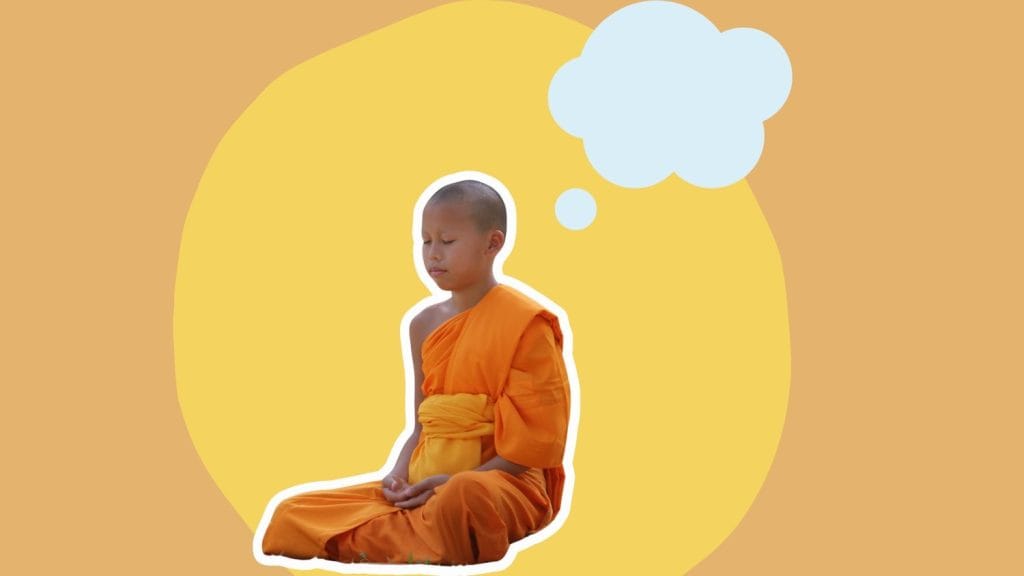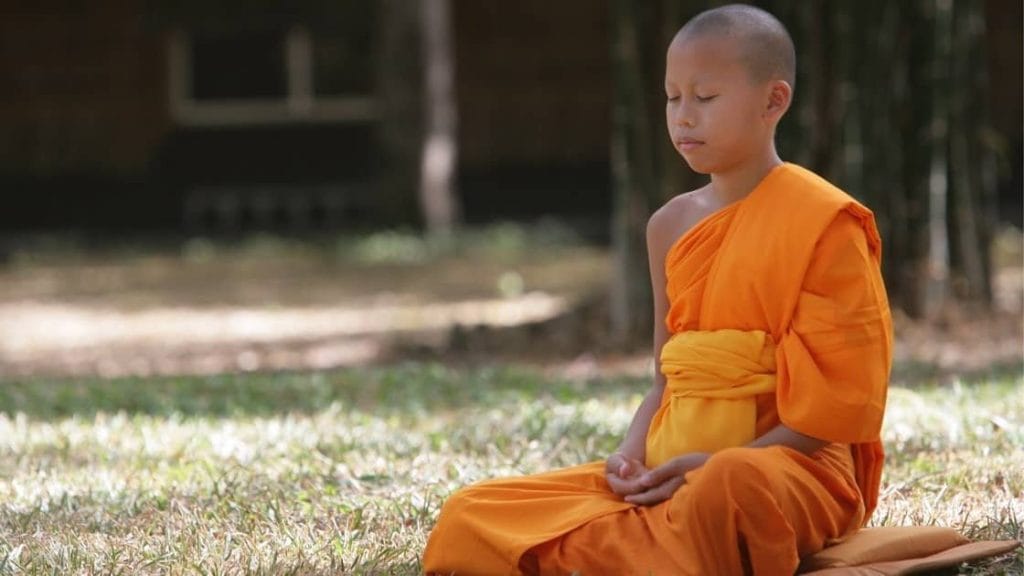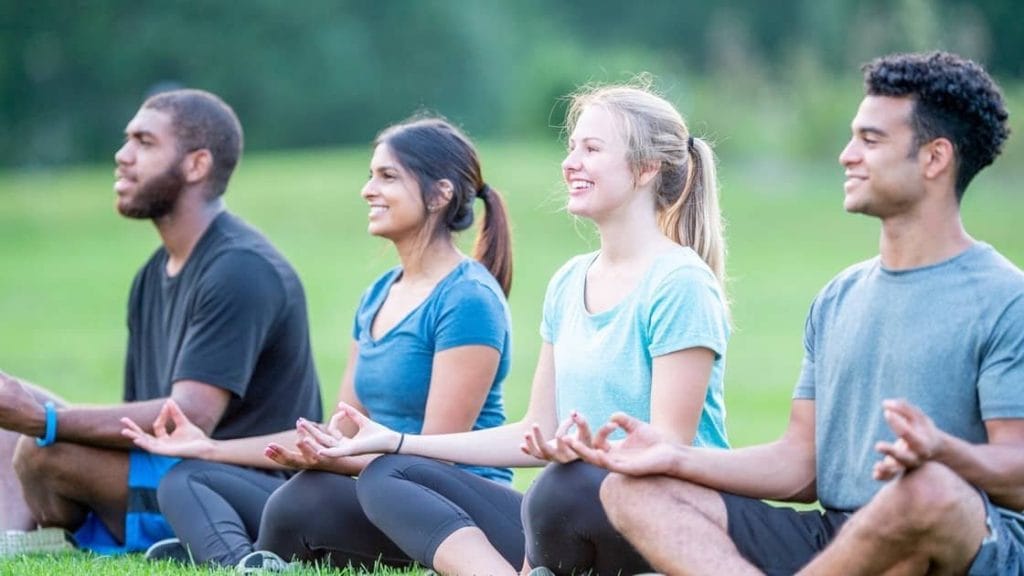6 Mistakes You Might Be Making When Trying To Meditate
We include links to products we think are useful for our readers. If you click and buy a product through one of the affiliate links on this page, we may earn a small commission.

You can’t reach monk status in a day, but here’s some common mistakes you might be making when you look inwards
Whether you have reached complete guru transcendence mode or have just recently decided to start trying meditation as part of your wellness practice there are common challenges that most people face when meditating. After many years of meditation practice between us, we have come up with 6 common mistakes made when trying to meditate.
For the many of us, the meditation journey started with the help of some kind of meditation app that we used as our digital guided coach. This is a fantastic place to start meditation practice and indeed I still use some type of meditation app to guide us through meditation.
We have also tried our fair share of meditation apps and think we have the best meditation app in 2025 – Headspace. To be honest, it is a common feeling for beginners that meditation just doesn’t feel like it’s ‘working’ despite hours and hours of practice.
The truth is, every person’s meditation journey will be different and will come with it’s own individual challenges – it is a very personal and subjective endeavour. Take a look below at some common mistakes that you might be making when you try to tune in..
What Are The 6 Common Mistakes Made When Trying To Meditate?
1. You Think Of Meditation As A Chore
Meditation is ideally supposed to be a pleasurable experience. The truth is, it can bring out some demons when the only thing you are listening to is the constant chatter of the mind. When meditation is, from the outset, an arduous task to bear trying to tame the mind, sit with pain and discomfort and face yourself head on, it is easy to put meditation in the box of ‘chore’. We begin this inner dialogue of coming up with all of the reasons why we can’t take 5 or 10 minutes to switch off because it’s too hard, “I don’t have time”, “I can’t switch off”. When we have to drag ourselves to the mat for a meditation practice, it can begin to seem like something we ‘have’ to do rather than something that we ‘want’ to do to commit to being a better person, partner, friend, colleague or boss.
In this case, it is important to continue to check in, to remember the reason that we were drawn to meditation in the first place – the ‘why’. If we can remind ourselves that we are giving ourselves the benefits of stress management, better sleep, better focus, better performance, relaxation and better emotional intelligence that come with meditation, we can continue to view meditation as a personal reward rather than a forced chore. Whether it’s the promise of stress management, better sleep, improved focus, enhanced performance, or greater emotional intelligence, these benefits can serve as powerful reminders of why meditation is worth the effort.
Viewing meditation as a personal reward rather than a forced chore can help shift our mindset. By framing it as an opportunity for self-care and reflection, we can cultivate a sense of gratitude for the time we spend in practice. Instead of focusing on the struggle, we can celebrate small victories—whether it’s a moment of stillness, a fleeting thought we observed without attachment, or simply the act of showing up for ourselves.
It can also be helpful to approach meditation with a sense of curiosity and playfulness. Experimenting with different techniques, environments, or durations can make the practice feel fresh and engaging. Allowing ourselves to explore what feels good can deepen our connection to meditation and make it more enjoyable.
Ultimately, meditation is a journey, and like any journey, it can have its ups and downs. By nurturing a compassionate relationship with ourselves during practice, we can transform it into a cherished part of our daily routine—one that enriches our lives and enhances our capacity to be present for ourselves and others.
2. You Try To “Stop” Your Thoughts
Humans have 12,000 to 60,000 thoughts a day. Thoughts will continue to flow through the mind no matter how good you are at mediation. Often, beginners of meditation think the primary goal of meditation and mindfulness practice is to stop all thoughts. This just isn’t the case.
So what is the alternative? The meditation experts describe the analogy of clouds passing through the sky. As you watch the clouds pass by in the sky, you can observe them without judgement rather than try to grab onto them or make them go away all together. This analogy describes the way in which meditation allows you to not so much ‘stop’ your thoughts but instead to be a little less emotionally attached or judgemental of them as they arise and disappear. We become the observer.
In this practice, we become the observer of our thoughts, learning to recognize them as fleeting moments rather than fixed realities. By adopting this perspective, we can create a mental space that enables us to respond to our thoughts with curiosity rather than reactivity. This shift in perception is empowering; it allows us to maintain a sense of calm and clarity amid the chaos of daily thoughts.
Through consistent practice, we can develop greater awareness of our thought patterns and identify recurring themes or triggers. This awareness not only enhances our meditation practice but also translates into everyday life, helping us manage stress, anxiety, and emotional responses more effectively.
Ultimately, the goal of meditation is not to silence the mind but to cultivate a sense of peace and acceptance, regardless of the thoughts that arise. By viewing our thoughts as passing clouds, we learn to let them drift by without attachment, allowing for a deeper connection to the present moment. This practice of observation fosters mindfulness, enabling us to navigate life with greater ease and presence.
3. You Are Inconsistent With Practice

How many times a week do you work out or exercise? If you are like most of the RG team, you would answer about 5-7 times per week. We like to place meditation on the same level of importance as exercise. Essentially, meditation is a workout for the mind. Just as you prioritize physical training for your body, it is crucial to give meditation the same commitment and consistency to cultivate mental resilience and clarity.
Doing it once is certainly better than nothing, but if you want to build that muscle of awareness, you have to keep doing those mental reps. Regular practice is key to reaping the full benefits of meditation, such as reduced stress, enhanced focus, and improved emotional well-being. What we find helps with maintaining a regular practice is scheduling time in your calendar, setting reminders on your phone, tracking your sessions with a meditation app, and setting achievable goals for yourself in journals or diaries.
Additionally, when a practice becomes habitual, it requires much less effort and deliberation to commit to it. Establishing a solid routine for your meditation practice means that over time, it will seamlessly integrate into your daily life. This commitment transforms meditation into a non-negotiable part of your day—something you prioritize and work around, rather than a task you dread or overlook.
As the saying goes, “Motivation is what gets you started. Habit is what keeps you going.” By cultivating a habit of meditation, you create a lasting foundation that supports your mental and emotional health. Just as you wouldn’t skip your workout without good reason, you’ll find that the same mindset applies to your meditation practice. Ultimately, the consistency you develop will not only deepen your meditation experience but will also enhance your overall quality of life. Embrace this journey, and you may discover that meditation becomes one of your most rewarding daily rituals.
4. You Don’t Make Yourself Accountable

Accountability and consistency go hand in hand. In a research paper by the Journal of Clinical Psychology, approximately 54% of people who resolve to make or break a habit don’t last beyond six months for the commitment, and the average person makes the same life resolution 10 times over without success.
These are bad odds but we think the issue is accountability, or lack of it. Picture the times when you have agreed to go to a morning class, event or race and you have done so with a friend or group of friends. This action creates accountability and gives you an extra commitment outside of yourself that makes you far more likely to attend despite the emotions you feel telling you it’s too hard.
The tip here is to meditate with others or you could also use one of the meditation apps like Headspace that tracks your daily meditations and gives you a “streak” counter to tell you how many days in a row you have meditated. If you love data like us, you will be surprised how much this function drives you to continue to meditate daily. In meditating with others we create the reward of positive connection with a friend or group, and in tracking meditation with an app like Headspace we create a visual reward which can both go a long way!
5. Your Expectations Are Too High
The expectation that you will reach guru or monk enlightenment levels in every meditation is unrealistic. Yes, sometimes you will experience a deep inner connection and transcend the constant chatter of the mind that we all encounter. However, it’s important to recognize that meditation is not a quick fix or a means to an end; it’s a lifelong practice meant to be explored over time.
In fact, much of the true benefit of meditation will manifest outside of your formal practice. You may find that you have more quality interactions with others, become less reactive to emotions and stress, sleep more soundly, and experience fewer emotional highs and lows. The clarity gained through meditation can lead to better decision-making, allowing you to navigate life’s challenges with greater ease and confidence.
Profound benefits may surface after just a few days of practice, while others may not be noticed for months or even longer. Instead of setting the expectation for peak experiences during every session, it is more beneficial to approach meditation with an open mind and a willingness to simply experience whatever arises, when it arises. This mindset allows for a richer exploration of your thoughts, feelings, and sensations without the pressure of achieving a specific outcome.
By cultivating this attitude of acceptance, you allow yourself to engage with meditation as a journey rather than a destination. Each session becomes an opportunity to learn more about yourself, to witness your thoughts without judgment, and to cultivate a sense of compassion towards your own experiences. Over time, this practice can lead to lasting changes in your mindset, emotional regulation, and overall well-being.
Remember, the goal of meditation is not to escape from reality but to embrace it more fully. By letting go of rigid expectations, you open yourself up to the subtle yet profound shifts that can occur in your life as a result of regular meditation practice. Embrace the journey, and trust that the benefits will unfold in their own time.
6. You Judge The Way You Meditate
There is no absolute right or wrong way to meditate. It is true that the reason you may have started or be interested in starting meditation is in fact because you are highly self critical. If this is something that you find yourself doing in meditation you may feel yourself wondering how you look, criticising the way you breath, the way you sit, the way your arms are positioned etc.
It is important to notice what you are focussing on when you sit/lay down to take some time to yourself. One of the aims of meditation is to ‘catch’ yourself in these thought patterns and simply bring yourself back to the breath.You will find that there are a number of common practices to aid in channelling the focus and shifting the mind away from the internal dialogue including repetition of a mantra (in transcendental meditation) or matching the inhale and exhale to the count of 4 or 5 seconds (whatever suits your natural breath rhythm).
By taming the monkey mind and breaking out of the cycle of judgement, criticism and negative thought by noticing and catching yourself you can have a more pleasant experience both in meditation and in daily life.
Smarter recovery for humans…

